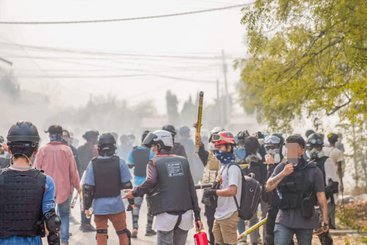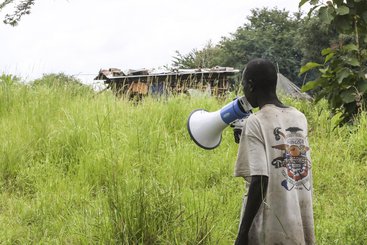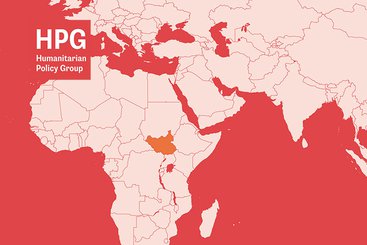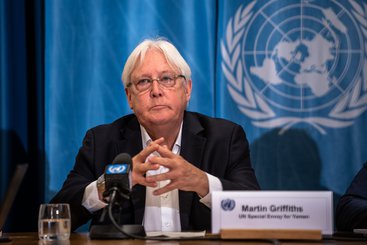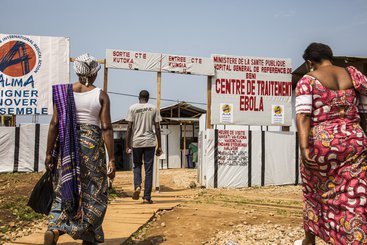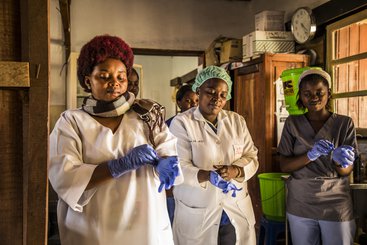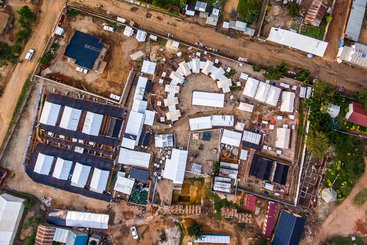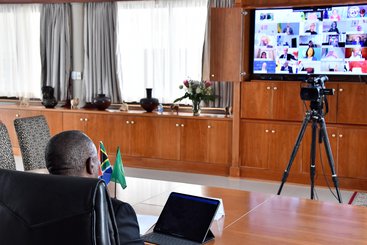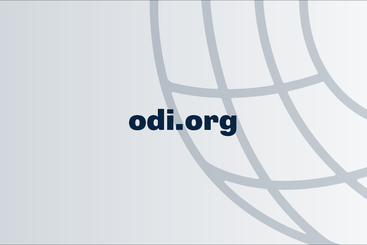
System Reform
Over the course of 2021, HPG undertook a significant body of analysis, policy engagement and convening on humanitarian reform, working at both system and country levels.
In HPG’s annual review of the Grand Bargain, we found the process has been an important vehicle and catalyst for change on system-wide shifts in policy and, to a lesser extent, in practice, on cash, local action, needs assessment and harmonised reporting. Not all ambitions were realised: for instance, on the ‘participation revolution’ we found that progress was hampered by a lack of collective political interest from signatories. HPG proposed in a separate insight that efforts on participation needed to move beyond feedback on aid projects, towards recognising people’s rights to participate in decision-making. Through bilateral briefings, public events and policy briefings, a large number of HPG’s recommendations on the format (enhanced leadership, streamlined coordination) and content (quality financing, local action and participation) of the new Grand Bargain were adopted.
In our analysis of progress on humanitarian financing since the 2016 United Nations Secretary-General’s High-Level Panel on Humanitarian Financing (HLP) report Too important to fail, HPG argued that without a long-term strategy or dedicated leadership, efforts to bridge humanitarian and development financing and expand donorship have been uneven, fragmented and not at scale. Engagement with key actors on quality financing highlighted that while aid organisations argue they do not receive sufficient quality funding to cascade more to frontline responders, donors feel there is a lack of visibility as to how this money is spent. Despite these concerns, there is scope and a common desire from all actors to increase the proportion of quality funding, in particular through multi-year core unearmarked funding and programme-based approaches.
HPG also undertook two significant country-level reviews pressing for inter-agency action in South Sudan and Democratic Republic of Congo (DRC). In HPG’s review of international coordination of the 10th Ebola response in DRC, we showed how a siloed medicalised approach overshadowed humanitarian considerations, that the response failed to engage communities effectively and, despite an investment of approximately $1 billion, didn’t leave behind permanent health infrastructure or capacity. In separate analysis, HPG showed how these issues were not new, and how lessons from the Ebola outbreak in West Africa five years earlier had not been applied.
HPG also documented the breakdown in South Sudan of the Integrated Phase Classification (IPC) process which analyses levels of food insecurity. Drawing on intensive engagement with government, UN and national and international actors in South Sudan, as well as international experts, HPG proposed a number of ways to get the IPC process back on track in South Sudan and other contexts.
Humanitarian Practice Network articles
The case for letting go of humanitarian reform - by Nick van Praag
Everyone’s doing stuff but nobody’s accountable – will Grand Bargain 2.0 set us right? - by Nick van Praag and Meg Sattler
Preventing the nexus becoming the next fad requires transformational change in the aid system - by Damian Lilly
Neutrality: principle or tool? - by Sean Healy
Not a priority: the lack of contextual understanding in humanitarian missions - by Dominic Naish
Should we discriminate in order to act? Profiling: a necessary but debated practice - by Françoise Duroch and Michaël Neuman
